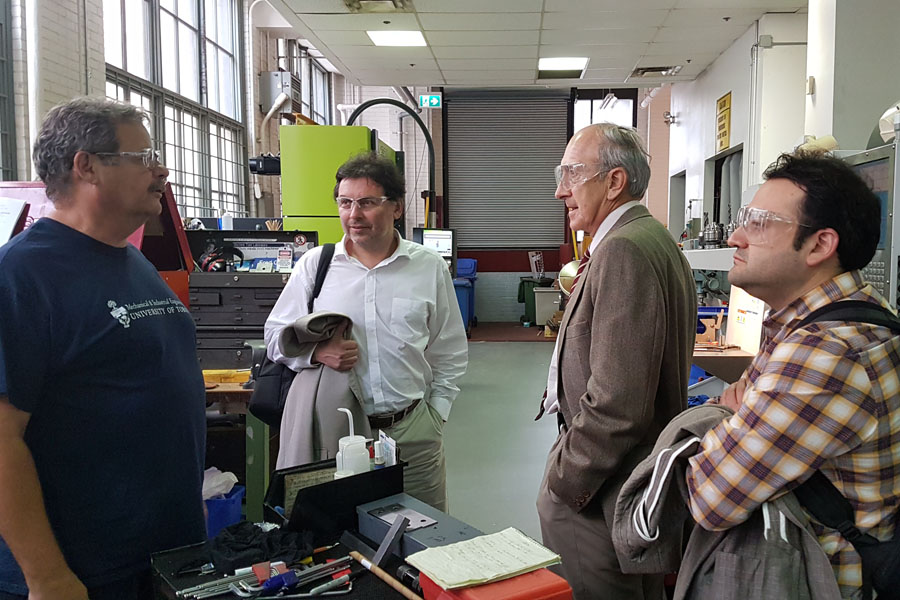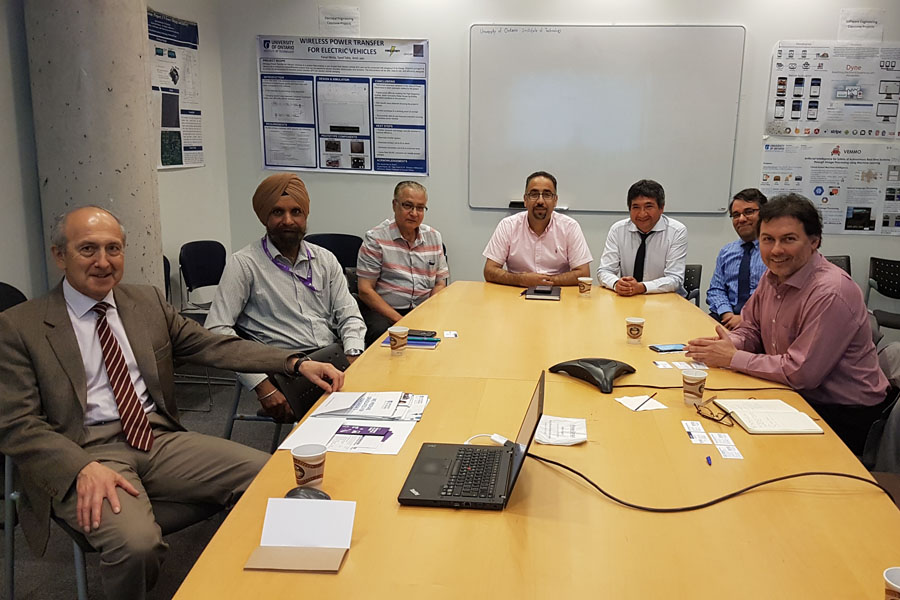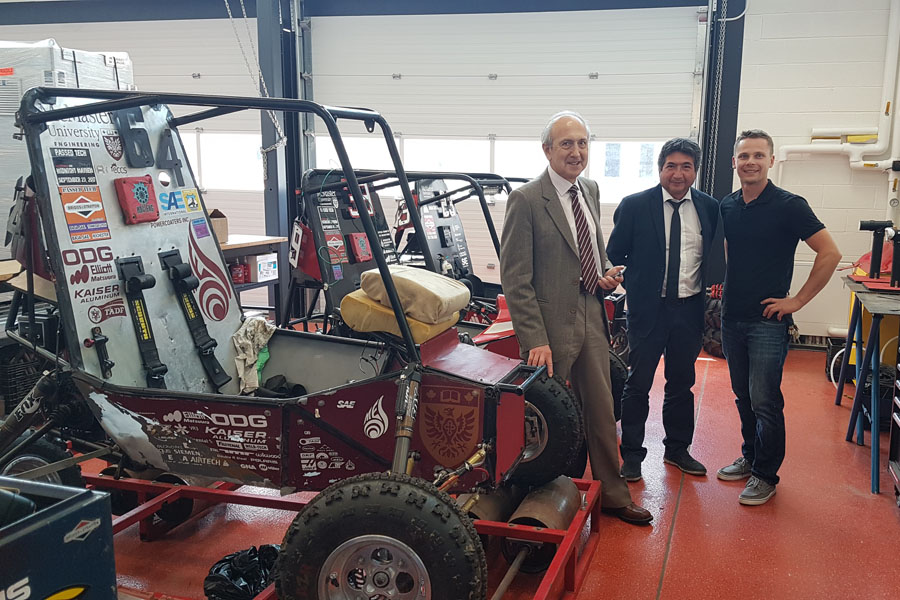|
The training of engineers - this was the central topic during the academic visit of authorities of the Faculty of Engineering and Science of the Universidad de La Frontera in Canada.
|
The delegation was led by Dr. Rodrigo Navia Diez, the dean of the UFRO Faculty of Engineering and Science. They visited different universities and were able to put into action their plan to gain a deep insight into the Canadian experience regarding the implementation of programs that address design and innovation in their syllabi for their engineering programs, at an early stage.
“We have decided to take a look at Canada, basically, because this is where we want to head with our training in engineering. The Canadian universities train engineers with relevant skills in basic sciences, but also develop the topics design and innovation, beginning in the first years of studies,” Dr. Navia pointed out. He added: “Regarding this aspect, the Canadian universities are recognized for being pioneers.”
At the moment, the UFRO Faculty of Engineering and Science is in a process of curricular innovation and updates, in which three key competencies have been defined for a new profile of the Civil Engineer graduates of the UFRO: design, innovation and social responsibility, while the first two are the most complex ones to address in the curricula.
This is why we want to get to know the successful Canadian experiences in the implementation of their syllabi and methodologies linked to the fields of design and innovation.
“Canada is an example in the training of engineers. On the one hand because of their methodologies that concentrate on the student, their active methodologies which confront the students with actual problems in the field of engineering since the first year of studies, and on the other hand because they are learning basic sciences. We, as a Faculty, need to study successful experiences regarding these topics in order to try to replicate them, in accordance with our reality, in the curricula of our Civil Engineering programs,” the dean specified.
Regarding the observed facts during their trip, Juan Möller, the director of Undergraduate Affairs at this faculty sustained: “Canada – regarding design in engineering – has made some changes in the curricula, the methodologies used in class and the support infrastructure, besides of incorporating a multidisciplinary content since the beginning, working in this field in a different way, what is fundamental in the work performance of an engineer. This is in accordance with the intentions we have, to make a change in the way our engineers are trained, reviewing our methodologies and the curriculum.”
The delegation visited the following Canadian universities on the trip: Toronto, McMaster, Ontario Institute of Technology and University of Guelph. The visits at the last two institutions also focused on partnerships regarding research and development in the fields of materials, mechanics and electronics. Besides, the delegation visited the company Quanser in Toronto, which is a leader in the development of laboratories with active methodologies in the training of engineers. The idea is to advance in joint projects with them.
The next step would be to concrete the visit of academics, the implementation of the corresponding syllabi for the UFRO programs in civil engineering that are associated with the topics design and innovation.
 Written by Daphne Bormann Faculty of Engineering and Science
|
 Written by Daphne Bormann
Written by Daphne Bormann






